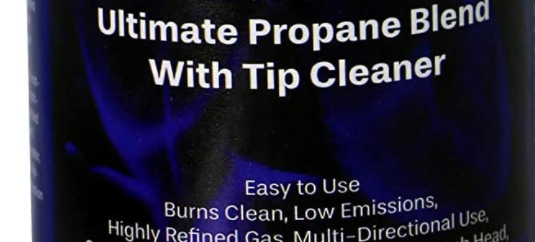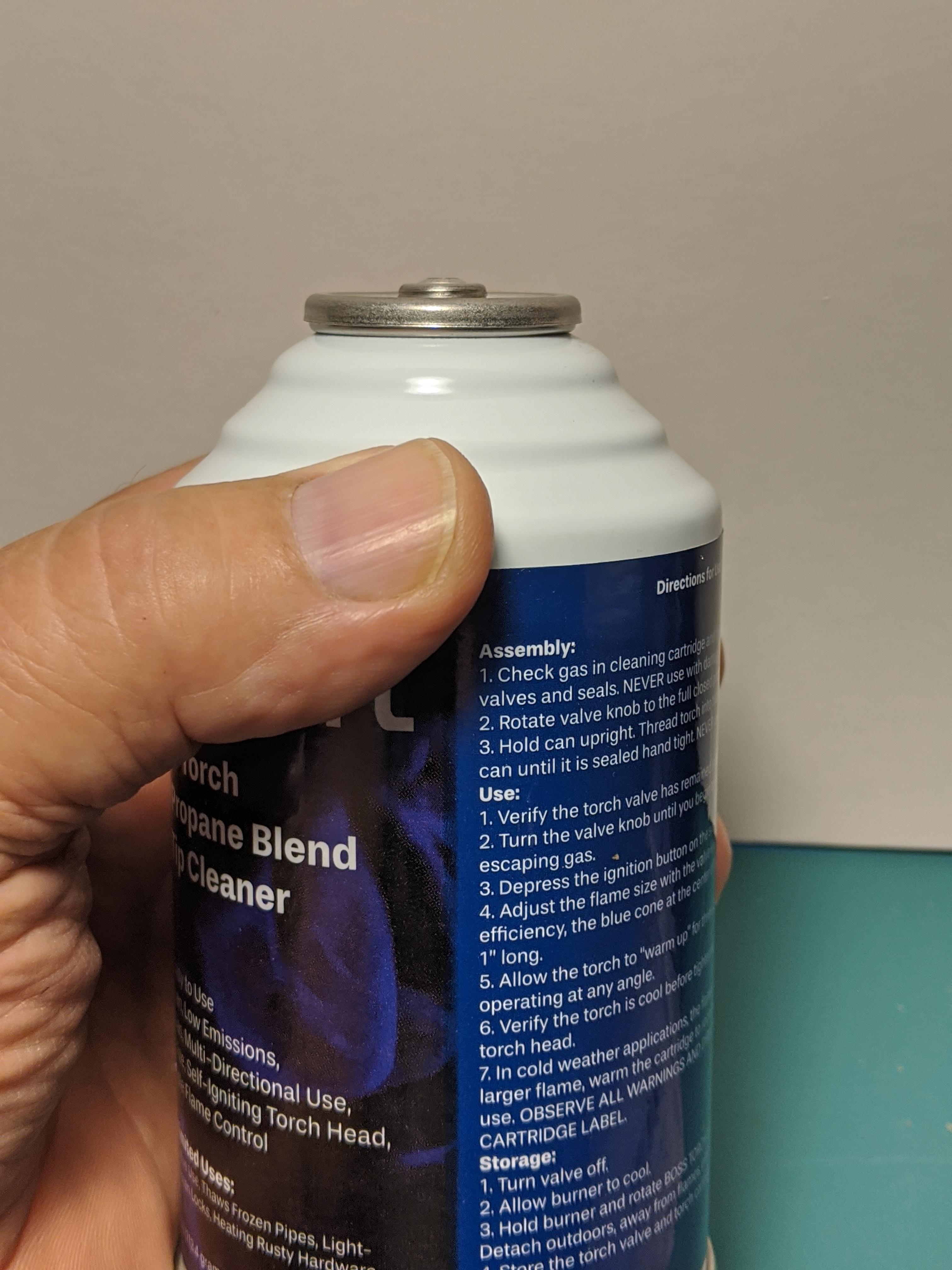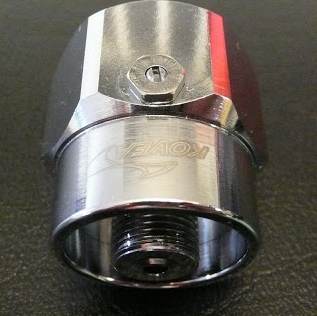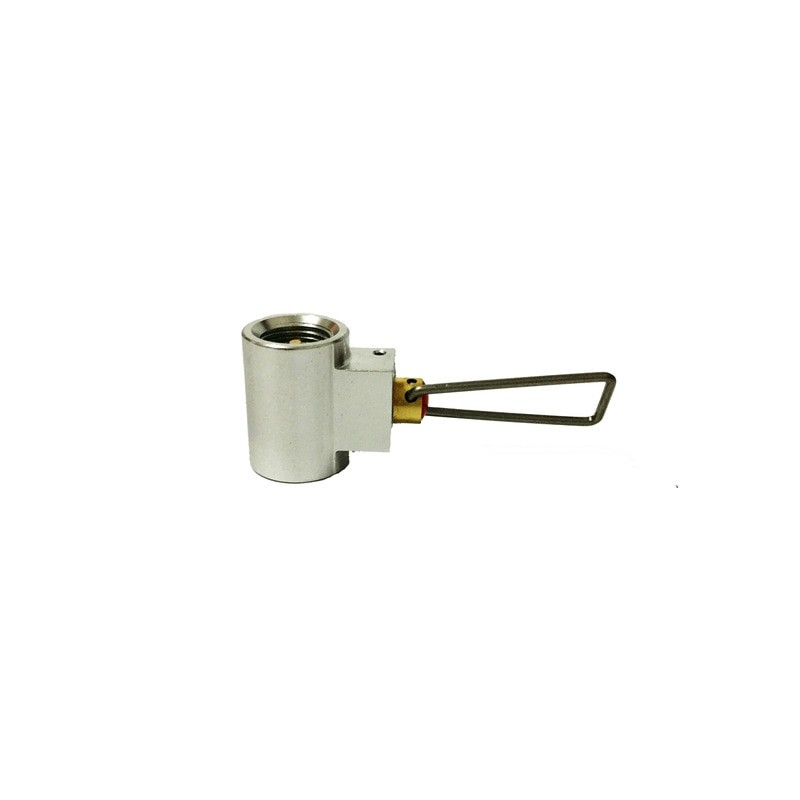Topic
2300W Foldable Gas Stove, Clip-on Stove Windshield
Forum Posting
A Membership is required to post in the forums. Login or become a member to post in the member forums!
Home › Forums › General Forums › General Lightweight Backpacking Discussion › 2300W Foldable Gas Stove, Clip-on Stove Windshield
- This topic has 80 replies, 9 voices, and was last updated 4 years, 7 months ago by
 Roger Caffin.
Roger Caffin.
-
AuthorPosts
-
Jul 2, 2020 at 8:51 pm #3655975
Eh well, that depends (of course).
Boiling pts:
Butane : -0.5 C
Propane: -42 C
Obvious operational difference here!Ahhh, my choice would be the Propane. IF I were to attempt those frigid temps ;-) My friend in the north country does it every year.
I would never share the warmth of my feet with a canister :-) I would use an alcohol stove that does not require warmed fuel. I know alcohol stoves so I can do it ;) (companion burner with copper wick incorporated onto surface of stainless steel mesh) or Fancee Feest stove with piece of copper wick in center of stove. In the future, I may try a frozen butt hang up north with a propane stove just for the fun of it.
BUT for actual use with an inverted canister stove, it depends on how warm you kept the canister before use.
That’s the fiddle factor most frigid(-20F) weather trekkers put up with. It’s what they have to do. IF you had a small 300 gram canister of propane, no more fiddle factor. The canisters have a lindal valve. No need to sleep with them or carry them next to your back.
Jul 2, 2020 at 9:16 pm #3655977>> I would never share the warmth of my feet with a canister
Where’s the problem? After I have cooked dinner my canister is usually about 20 C, because I have managed the cross-radiation. I have never found it a problem.Anyhow, when ski touring I store my ski boots at the foot of my quilt as well, so I don’t have to put my tender feet into well-frozen boots in the morning. So does Sue. Been there in the morning, done that (had to), and found it … uncomfortable. Of course, they go into good plastic bags so not water (snow) gets loose. Not a problem.
As for carrying them near my back – where’s the problem? They have to go in my pack somewhere, after all. So do my water bottles.
>> IF you had a small 300 gram canister of propane, no more fiddle factor. The canisters have a lindal valve.
I know that Sievert used to sell typical fly-spray cans (ie about 300 g) with a Lindal valve and 100% propane, but only in the north of Europe. Today those 100% propane canisters do not appear on their web site any more. Mind you, they do have some nice bigger Lindal valve canisters of P/B on their web site.If there is another supplier who does sell 100% propane in small canisters with compatible Lindal valves, PLEASE let us know!
Cheers
Jul 4, 2020 at 7:04 am #3656141In my reading someone said a lot of fuel is wasted in the fuel line with a remote fueled stove.
When I use 100% propane I can have the canister standing upright. If I choose to lay it down with fuel in the line and then shut the valve off, the remaining fuel in the line will still be pressurised until all fuel is consumed. It remains pressurised because of the nature of propane. All I need to do is a little plan ahead when to shut the stove off. For instance when medium bubbles are forming on the bottom of pot time to turn valve off and let remaining line fuel bring water to boil. No fuel wasted!
Jul 4, 2020 at 8:12 am #3656147there are endless articles and threads about this, summary: : )
boiling point n butane 31F, isobutane 11F
good butane like MSR Isopro is iso butane so boiling point is 11 F. It will operate fine in upright stove down to about 20 F. It slows way down down to about 15 F, still usable.
cheap butane is about 50% iso, 50% n – boiling temp is about 21 F, operates fine down to 31 F, slows down down to about 25 F
Propane works fine down to any sane temperature
they rate butane/propane containers so they will withstand 120F or so. Propane will have a lot more pressure at the same temperature so those containers are much thicker/heavier. If you put propane in a butane container at 120F, it will burst. If you keep it at below some temperature like 70F, it’s okay. You’d have to look at Roger’s tables or that thread where David talked about doing this. This doesn’t seem like a good idea to me. Unless you live in the arctic and you’re a chemical engineer : )
The tried and true technique for cold weather is to put the canister in a bowl of water, doesn’t need much, then you can operate at arbitrarily cold temps. You have to put about 2% of the water you boil back into the bowl to keep it warm. The water doesn’t need to be warmer than 32F.
Mulder strip is good, but I have found it only works well on a short stove like BRS3000.
Pre warming the canister works but it cools in use due to evaporative cooling. If you don’t want it in your sleeping bag, use a Bic lighter to het it up.
Inverted canister is good but contaminants flow into your valve and can gum it up. Better fuel is better. When used upright, which is 99% of users, only gas leaves the canister so any contaminants stay in canister. Since this is 99% of users, mosy canister manufacturers probably don’t worry about the contaminants. Inverted canister stove weighs an extra couple ounces but Roger’s is pretty light. Aside from this, inverted canister is really good. Roger and I argue about the contaminants occasionally : )
Jul 4, 2020 at 4:50 pm #3656217@Jerry
Good summary, thank you.The idea that the really cheap ‘butane’ is actually a mix of n-butane and iso-butane and can be used a little sub-zero is a very good point.
I do use my winter stove in summer as well. The wide pot supports make the pot really stable compared to the rather short pot supports on so many small uprights.
Contaminants – I think Jerry and I are on the same page. They are a nuisance.
@Dan – yeah, I usually shut the canister valve off just as the pot is about to boil, so the fuel line empties as the pot boils. Worth doing.Cheers
Jul 4, 2020 at 5:21 pm #3656221If I felt mischievous I’d say something more : )
Jul 4, 2020 at 6:30 pm #3656241Thank you Jerry for the summary.
The wide pot supports make the pot really stable compared to the rather short pot supports on so many small uprights.
My pot support/windscreen covers the entire pot bottom for maximum support. There is a thread here where the Kovia Spyder was used with the pot support. I’ll be utilizing the same kit with the propane canister.
 Jul 4, 2020 at 6:37 pm #3656242
Jul 4, 2020 at 6:37 pm #3656242Yes, the Spider has much better pot supports.
Cheers
Jul 6, 2020 at 7:05 am #3656420I found the 2300W Lixada camp cook set on Amazon. It has ONE REVIEW, which says as follows:
Stove did not work at all. QC is very bad. Valve body was not made correctly. I had to remove valve stem, plunger and finish the hole that the plunger was in. Got stove to work but it is very cheaply made and pot stand on stove is very weak. Wind screen is also heavy for light weight backpacking. Fuel stand is ok but heavy and does not fit butane cans. Gas fill valve is also heavy compared to my other one from Amazon. Fuel fill valve is very cheaply made, but seems to work.
Amazon reviews can often vary widely, but not exactly a ringing endorsement of the setup.
Dan – any further thoughts to add? Did you have any problems using the support legs with standard Iso-Pro fuel canisters? Do the pot supports on the burner feel flimsy to you? It seemed like you ditched the stove that came with the kit in favor of the BRS-3000T.
Jul 6, 2020 at 8:24 am #3656436a stove with worse quality than the BRS3000?
not a ringing endorsement either : )
Jul 6, 2020 at 9:14 am #3656458Dan – any further thoughts to add? Did you have any problems using the support legs with standard Iso-Pro fuel canisters? Do the pot supports on the burner feel flimsy to you? It seemed like you ditched the stove that came with the kit in favor of the BRS-3000T.
I purchased the stove for my wife to be used for car camping. But….being the stove nut that I am, I was interested in the transfer valve and clip-on windscreen.
The canister support legs are solid, no problems foreseen using it.
Stove pot supports are not flimsy when extended for use. The three of them are are at the same level, no rocking of the pot when placed on them for use.
It’s my wifes’ stove, I’ll ask her to fire it up this evening so we can watch some water boil ;-)
I don’t endorse the purchasing of a BRS3000t due to all the negative reports given here on BPL especially the report given by Ryan Jordan, 7 purchased, 4 failed. Those of you that have them be aware that the pot supports can fail when least expected. HikinJim and Ryan and others had their failures. Learn from their experiences ;-)
Jul 6, 2020 at 8:18 pm #3656721Jul 6, 2020 at 10:07 pm #3656735Rather like a small Kovea stove – or a copy perhaps.
Cheers
Jul 7, 2020 at 12:02 pm #3656829I found the 2300W Lixada camp cook set on Amazon. It has ONE REVIEW, which says as follows:
I submitted my review today, should appear in a day or two so they say.
The Optimus clip on windscreen weighs 30z. The 2300W clip on weighs 2.8oz.
Cost of the Optimus windscreen $15.00 The entire 2300W kit cost only $27.00
The stove flame ajustments are great, worked just fine. Watch the video.
Inverted canister is good but contaminants flow into your valve and can gum it up. Better fuel is better. When used upright, which is 99% of users, only gas leaves the canister so any contaminants stay in canister. Since this is 99% of users, mosy canister manufacturers probably don’t worry about the contaminants.
The canisters of propane that I have been using are suppose to have an additive that keeps the jet clean. (think carburator cleaner, gas tank additive :)This is what the manufacture says:
“”Propane fuel is very dirty. When that type of fuel is used it will inevitably clog the torch head. Eliminate clogging! The Ultimate Propane Blend with Tip Cleaner will keep your torch head performing like new. GHS Hazard Statements: H220 – Extremely flammable gas H400 – Very toxic to aquatic life H410 – Very toxic to aquatic life with long lasting effects H317 – May cause an allergic skin reaction H315 – Causes skin irritation H226 – Flammable liquid and vapor H280 – Contains gas under pressure; may explode if heated””

I’m impressed with the small 4oz propane canisters that I have mentioned earlier. After much thought, I’ve decided to offer them in my online store in a day or two.
Jul 7, 2020 at 4:20 pm #3656888“After much thought, I’ve decided to offer them in my online store in a day or two.”
How are you going to ship them? You would need DoT-rated packaging, or very expensive courier.Cheers
Jul 7, 2020 at 6:44 pm #3656908I’ll do my best to make them affordable.
Keep in mind, they are refillable. The container is manufactured here in the USA to OSHA and DOT standards.
Packaging with be in accordance with DOT regulations.
Jul 8, 2020 at 9:22 am #3656985A little information on using 100% butane by HikinJim:
quote:
100% Propane for Backpacking II
I’ve described 100% propane as the “Holy Grail” of cold weather backpacking for canister stoves. Why? Take a look at the below table of the vaporization points of the gases used for canisters stoves.
Boiling (vaporization) point
n-butane -0.5C 31F
isobutane -12C 11F
propane -42C -44FIf temperature falls below the values indicated below, you’ll have a liquid not a gas. Ever try to run a gas stove on liquid fuel? Good luck. Propane has the lowest vaporization point by far. When other fuels are rendered useless by cold, propane will still be good to go.
So, why don’t backpackers all just use 100% propane in cold weather? Well, two reasons: 1) most stoves designed for 100% propane are big kludgey (by backpacker standards) affairs that were never intended to be carried on one’s back and 2) 100% propane has some seriously high vapor pressure. Those little thin walled backpacking canisters are not going to safely hold something like 100% propane. You have to carry a heavy duty canister.
Well, we can’t do anything about the heavy duty canister side of things (unless you can find a Bernzomatic PowerCell), but what if you could lose the big kludgey car camping stove? I mean, that’s half the battle, right?
How? With a Kovea LPG (propane) Adapter which I’ve covered previously. In this post, I’d like to talk about the practicalities of 100% propane for backpacking.
First, when I say propane, what’s typically available that is portable?””
Read more from his site:
https://adventuresinstoving.blogspot.com/2012/01/100-propane-for-backpacking-ii.html
———————————————————————–
Here is what the canister looks like in hand:
 Jul 8, 2020 at 5:08 pm #3657058
Jul 8, 2020 at 5:08 pm #3657058Thinking … thinking
I see two problems here:Can the canister take the much higher pressure of 100% propane? Given the shape of the top end, it might do so.
The much higher pressure of 100% propane means that you could get flame lift-off at the burner head of a typical stove if you open the valve too much, which could be very dangerous. Normally one might use a pressure-reducing regulator to handle this, but that is extra weight. Given the physics of the whole thing, I SUSPECT that a modified jet MIGHT be all that you need to make the stove a bit safer. You would have a somewhat reduced range of adjustment on the needle valve, which would take a bit of getting used to.
What mods to the jet might work? Well, a typical stove jet has a hole of about 0.3 mm diameter. Things do NOT scale at these dimensions, but I would start thinking about a hole of about 0.2 mm diameter. Problems: drilling a hole that small is even harder to do than my 0.3 mm hole, and a hole that small would block up more easily too.
The point of the tiny hole is to limit the flow of gas. Is there any way you could use a bigger hole? Yes: you could make it much longer. That would be like using a long hose in place of a very short one. My jets have a hole about 0.3 mm dia x 0.3 mm long. Could one go to 0.3 mm x 1.0 mm long?
I have also experimented with using some hypodermic tubing to make the hole. With hypo tubing you could have a really long hole, which would provide a lot of drag on the gas. With precision drilling, one could perhaps press-fit the hypo tubing into a bored-out jet.
A more complex possibility would be to make a miniature pressure reduction valve to go in-line in the hose. It would be of a ‘set it and forget it’ variety – unless it got blocked up with dirt? Sigh.
Those canisters are not available in Australia. Oh, I wish! Anyone got any empties?
Cheers
Jul 8, 2020 at 7:23 pm #3657079The canister is commercial grade made for hand held soldering torch. The shape of it’s top says “very well made” because it has ridges for strength. :-)
I recently saw a valve that had a set screw on it’s side to adjust the fuel coming out of the canister. I’ll have to do a search for it. That set screw would prevent “lift off” when adjusted properly. I suggest 100% propane canisters be used only for remote fueled stoves with preheat tubes or an inline shunt at the stoves base as seen in your recent thread.
I’m going to go off and look for the valve with set screw….later!
Jul 8, 2020 at 7:38 pm #3657081Here is the adapter valve with set screw used to adjust initial flow going to stove fuel line:
 helps prevent flame liftoffJul 8, 2020 at 7:50 pm #3657085
helps prevent flame liftoffJul 8, 2020 at 7:50 pm #3657085did it originally come filled with propane/butane? It says “propane blend” on the label so it must have a propane/butane blend?
does it specify the percentage of propane?
does it specify the maximum temperature it can be stored at?
if it didn’t specify the propane percentage, you could determine that by cooling until there is zero pressure – open valve, nothing comes out. Measure the temperature. From that you could take some table from one of Roger’s articles and determine the propane percentage.
Don’t refill with a higher percentage propane than that.
Or, use at a maximum temperature less than that spec, and a higher percentage propane. Use Roger’s table(s) to figure out numbers.
Jul 8, 2020 at 8:01 pm #3657091Yes, but that won’t work with the Ultimate Propane canister. Instead it connects to a standard LPG fitting as found on many small LPG bottles. I had checked it out before this. Nice idea though.
Could a SOTO (MSR, etc) Pressure regulator valve handle the pressure and provide a sufficiently controlled flow? Dunno.
Cheers
Jul 8, 2020 at 8:17 pm #3657092Good questions:-)
I need to find a connector that has male lindal on one end and female on the other.
This connector has 2 female and shut off valve combined.
 Jul 8, 2020 at 8:21 pm #3657094
Jul 8, 2020 at 8:21 pm #3657094those were just hypothetical questions, not necessarily to be answered, maybe spur other questions… : )
I have one of those connectors. You can transfer fuel from one canister to another. Like, you can take the fuel from an almost empty canister and top off a mostly full canister.
Jul 8, 2020 at 8:38 pm #3657096I want the male-female to go onto the canister and then the remote canister screw onto the male end. That will give me 2 control valves, one to act as pressure regulator and the other flow regulator to give max flame and reduce to simmer for baking etc. With that set-up any stove can be used.
-
AuthorPosts
- You must be logged in to reply to this topic.
Forum Posting
A Membership is required to post in the forums. Login or become a member to post in the member forums!
HAPPENING RIGHT NOW (February 11-21, 2025) - Shop Hyperlite Mountain Gear's Biggest Sale of the Year:
Our Community Posts are Moderated
Backpacking Light community posts are moderated and here to foster helpful and positive discussions about lightweight backpacking. Please be mindful of our values and boundaries and review our Community Guidelines prior to posting.
Get the Newsletter
Gear Research & Discovery Tools
- Browse our curated Gear Shop
- See the latest Gear Deals and Sales
- Our Recommendations
- Search for Gear on Sale with the Gear Finder
- Used Gear Swap
- Member Gear Reviews and BPL Gear Review Articles
- Browse by Gear Type or Brand.




 helps prevent flame liftoff
helps prevent flame liftoff


